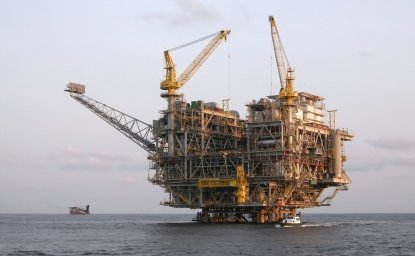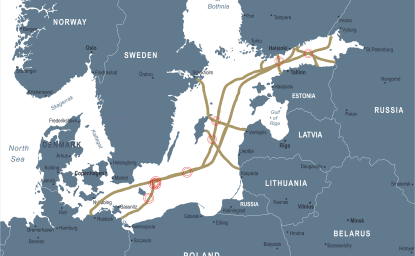What is the impact of low oil prices on the private sector in Mexico?
Low oil prices are impacting the Mexican private sector in many of the same ways we are witnessing around the globe. Countries that remain heavily dependent on oil are being hit particularly hard. For Mexico, the situation is further complicated by the Andrés Manuel López Obrador (AMLO) administration’s stubborn adherence to a nationalist agenda and refusal to deviate from that strategy despite the pandemic and associated economic bedlam transpiring globally. Mexico will not be immune to either impact. On the economic side, it is vital to place a few things in perspective before discussing the impact of low oil prices on the private sector.
Massive crude oil market oversupply has been particularly harsh on the Mexican oil basket, which has grown heavier with 63% of PEMEX’s production now comprised of heavy crude. The oil glut pulled the Mexican basket price down 67.5% for the period between February 14th and March 23rd vs. 51.1% for West Texas Intermediate (WTI). As the Mexican basket has fallen to well under US$ 20/ barrel in recent days, it has caught the attention of bondholders and magnified PEMEX’s heavy and untenable debt burden of over US$ 105 billion, plus large pension liabilities that have only swelled with the austerity measures AMLO enacted since taking office in December 2018. Despite lower royalties in 2020 and the hedges PEMEX and Hacienda have touted, disproportionately heavy fixed costs will demand further massive government capital injections in 2020. Depending on the oil price assumptions used and CAPEX cuts that will ultimately have to be made despite official statements suggesting otherwise, PEMEX will easily burn through US$ 1 billion/ month and likely much more. PEMEX’s finances will only deteriorate further without radical changes and the government formally assuming a major portion of its debt burden or guaranteeing it.
With an economy already in recession prior to COVID-19, and heavily dependent on exports now under fire, Mexico’s economic impact is only being compounded without meaningful government intervention or major policy shifts. Adding insult to injury has been the recent public consultation held in Mexicali, with less than 5% of registered voters participating, to revoke permits already issued for a US$ 1.4 billion Corona and Modelo beer manufacturing plant being built by Constellation Brands. The president is backing the consultation results, to the widespread public outrage of Mexico’s business community. Holding a public consultation during a pandemic only adds fuel to the fire. And it only heightens uncertainty at a time when the government should be doing everything in its power to protect and safeguard investment.
As a result, while the Mexican peso was the best performing emerging market currency against the U.S. dollar in 2019, it is now the worst performing global currency against it in 2020, having devalued some 35% in just over a month through March 23rd. Looming credit downgrades of the sovereign and PEMEX will only place further pressure on the Mexican peso.
For the Mexican private sector, these dynamics are certainly taking their toll on who stays and who goes but are also creating opportunities for those that believe long-term prospects and fundamentals remain strong. E&P companies around the globe cutting CAPEX at approximately 20-50%, undergoing other cost cutting measures and shelving stock buyback programs will certainly impact Mexico. The good news for Mexico is that the bid rounds it launched under the last administration will keep a certain level of investment going. Nonetheless, we can expect companies that have not started or locked into drilling campaigns to delay them as long as contractually possible, particularly if the government doesn’t change its ideological rhetoric, pivot, and actually incentivize current activity. Deepwater projects will be particularly impacted at current oil prices, as seen by the recent return of a block awarded to a Total-led consortium after drilling a dry hole. The consortium agreed to pay a US$ 21.2 million fine for not completing its minimum work program obligations. All eyes will be on shallow and midwater drilling campaigns underway following the highly encouraging discoveries of Zama, Cholula, and Sáasken in entirely new water depths and geological plays.
As for the return to the service provider model AMLO has pursued to strengthen state-owned energy sector monopolies, it has neither yielded the results promised nor ensured payment confidence for providers. The squeeze on government finances that will unfold this year will only increase payment uncertainty that many providers will not be able to weather. The same can be said for much of the yet to be released Energy Infrastructure Plan.
With natural gas prices at all-time lows, the Mexican government would be well served to do everything in its power to help ensure completion of and bring online many of the pipelines tendered under the last administration. With over five BCFD of imports that will continue to grow in the medium- and long-term, Mexico doesn’t have the option or luxury to continue to tout a self-sufficient model to the detriment of domestic companies and the overall economy.
On the consumer front, gasoline prices have certainly dropped but are muted by declining demand, along with economic factors such as devaluation and inflation starting to raise its ugly head. In many other energy sector areas, opportunities remain and will only grow, particularly as surety of supply from traditional government suppliers comes into question. Fuel supply and storage, further imports and acquisitions, to name a few areas, will certainly remain active and increase over time.
Overall, although many of the dynamics plaguing Mexico’s energy sector and private sector participation were soundly in place and reaching their limits well before the ravishing effects of COVID-19 coupled with the oil supply war Russia and Saudi Arabia triggered, events and reactions being taken are only ensuring an even more acute outcome. The only question is how much economic pain the current government will be able and allowed to tolerate before it pursues meaningful changes. This will bring numerous opportunities, albeit not entirely obvious, as we all watch the COVID-19 pandemic continue to unfold.
Author

Mexico Institute
The Mexico Institute seeks to improve understanding, communication, and cooperation between Mexico and the United States by promoting original research, encouraging public discussion, and proposing policy options for enhancing the bilateral relationship. A binational Advisory Board, chaired by Luis Téllez and Earl Anthony Wayne, oversees the work of the Mexico Institute. Read more

Explore More
Browse Insights & Analysis
Debunking the Patient Capital Myth: The Reality of China’s Resource-Backed Lending Practices

Gas and Power in a Changing US–Russia Relationship

